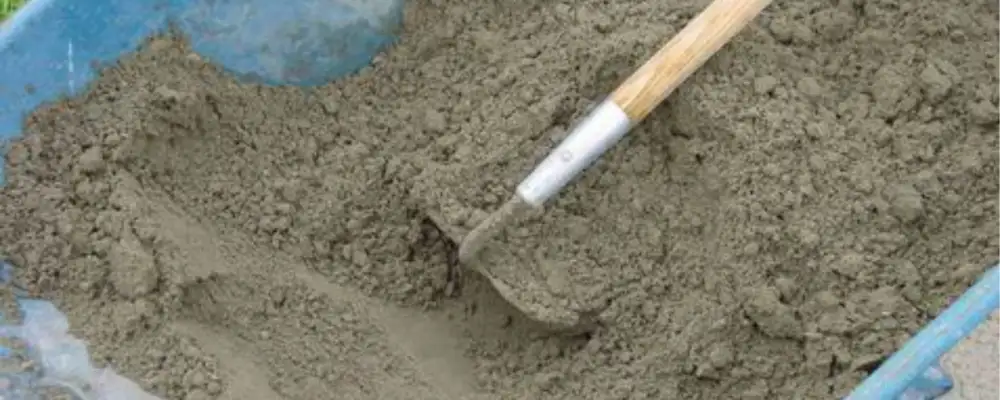Mortar is an essential component in construction that possesses binding material and helps provide structural integrity, stability, and durability. There are numerous types of mortar, based on the materials used, purpose, and consistency. Dry pack mortar is one of a kind and serves multiple purposes and adds value to construction and repair tasks. This blog will explore dry-pack mortar, its preparation, application, advantages, disadvantages, and more.
What is Dry Pack Mortar?
Dry-pack mortar, or deck mud, is a type of mortar that is specially designed for the repair and installation process. It is a mixture of Portland cement, sand, and a minimal amount of water, resulting in a thick and dry consistency. This mortar, when applied, allows rapid hardening, ensuring durability and strong bonding, especially in places where solid, compact material is necessary.
Preparation of Dry Pack Mortar
Measuring
Choose between Type 1 or Type 2 Ordinary Portland cement, sand, lime, water, and other ingredients and measure them according to the mix ratio. In general, for one batch of cement, three batches of sand are chosen. Additional elements such as lime or other materials can be chosen in appropriate amounts based on workability, and flexibility. It is necessary to ensure that the measurements are accurate and suitable for the specific work.
Mixing
After measurement, mix the cement, sand and lime in a dry container or using a mechanical mixer. Mix the ingredients uniformly without causing any lumps, making it easier to mix with water and bring it to a workable consistency.
Adding Water
Add a small amount of water to the dry mixture and mix it completely until it attains the necessary binding properties and holds all the dry mixture together. It is important to ensure that the mortar mix is not too wet or runny.
Quality Check
The consistency of the cement is checked by squeezing the mortar into a compact form without losing its shape. If the mortar is too wet, dry ingredients are added in appropriate amounts to balance the mixture. On the other hand, if the mixture is too dry, water is sprinkled on the mixture to attain its consistency.
Applications of Dry Pack Mortar
Repair Work
The most common application of dry pack mortar is for repairing purposes, such as filling gaps, cracks, or voids in structures such as walls, floors, or buildings. This mortar is applicable in places where the replacement of strong and dense material is crucial, especially in concrete and brick surfaces.
Tile and Brick Installation
This mortar can be used as a base material in tile or brick installation. It offers a solid base and can be applied to floors, walls, or countertops for secure installation.
Shower bases
Dry cement mortar is water-resistant and is used for a durable and waterproof shower base in bathroom construction. They can also be used in water-prone areas, providing long-term stability and strength.
Leveling Surfaces
These mortars are typically used for levelling the surfaces, especially for concrete floors or walls. It can also be used to fill the low spots and provide a uniform surface, making them suitable for tiles, brickworks, and other surface finishes.
Advantages and Disadvantages of Dry Pack Mortar
Advantages
- It has a low-water cement ratio and is thoroughly compacted, making it suitable for withstanding heavy loads.
- The low water content minimises shrinkage and helps reduce the risk of cracking.
- The quick setting time and high density make it more durable and make the structure stand for a long period of time.
- The application of dry pack mortar is versatile and can be used for a wide range of repairing and installation processes.
- The materials used for the preparation of dry pack mortar are affordable, making it a cost-effective option for small to large scale projects.
Disadvantages
- It can be challenging to work with dry-pack mortar due to its dry consistency.
- The quick setting time doesn’t allow enough time for adjustments during application.
- The preparation and installation process carried out using dry pack mortar is complex and requires skilled labour.
Conclusion
In summary, dry pack mortar is a specialised construction material used for versatile applications. It provides high strength, durability, and water resistance, and is ideal for repair and installation works, especially in places where load bearing is crucial. Although it offers numerous benefits, there are certain challenges associated with it, including difficulty in working, the need for skilled labourers and more. As a whole, dry-pack mortar is a valuable choice for construction.
FAQs
Dry pack mortar is used to repair, level, install, and provide structural reinforcement for any construction project.
Mixing dry-pack mortar is a delicate method that needs accurate measurements and careful mixing. In general, for one part of cement, three parts of sand are mixed with minimal water, providing dampness.
Yes, dry pack mortar can be used for certain waterproofing applications, such as installing shower bases and wet rooms. However, it cannot be completely waterproof unless it is combined with a waterproof membrane or sealant.
The dry pack mortar has a quick setting time due to low water content. It takes 1 to 2 hours for the mortar to achieve the initial setting time and 1 to 2 days for complete curing.
1. Dry Pack Mortar has low water content and is dense and crumbly, whereas regular mortar has higher water content and a pasty consistency.
2. Although both mortars are strong and compact, dry-pack mortar is comparatively stronger than regular.
3. The curing time of dry mortar is low, whereas it is longer for regular mortar.
4. Dry pack mortar is ideal for repairs, levelling, and installation of tiles and bricks, whereas regular mortar is used for bonding bricks, stones, and blocks.

